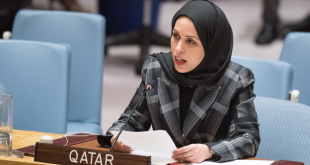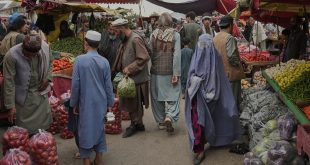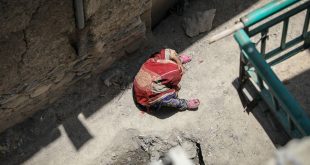By Dr. Matin Royeen
The term identity is derived from Latin (identitas) which means sameness, likeness and oneness. In practical terms, identity refers to accumulation of human qualities, beliefs and roles that defines an individual. Psychologists have discussed different stages of identity formation beginning at infancy and continuing until old age throughout human life span. According to Erik Erikson, an individual goes through eight stages of psycho-social development that defines one’s identity.
Stage 1. Trust Versus Mistrust: This stage of development occurs between birth and one year of age. The infant is completely dependent on the parent/caregiver for nourishment, love and care. If the infant is treated well in a safe and loving environment, his/her trust increases. On the other hand, if the infant’s needs are not met, the feelings of mistrust will develop.
Stage 2. Autonomy Versus Shame and Doubt: During early years, children begin to become slightly independent and develop some abilities to make decisions about simple things such as food preferences, clothing and toys. Allowing children to make these choices help them develop a sense of autonomy that builds emotional security and confidence. If the child is not given the opportunity to make choices, it will result in shame and doubt.
Stage 3. Initiative versus Guilt: During the preschool period, children learn to become independent in social interaction and play by taking initiatives. If the necessary skills are not developed, the child develops a sense of inadequacy and guilt.
Stage 4. Industry Versus Inferiority: During the early school years, children develop a sense of pride in their daily accomplishments (industry) while interacting with others. In order to maximize such achievements, it is important for parents, teachers and other significant adults to encourage and provide opportunities for these accomplishments. In the absence of any encouragement and failing to realize the children’s talents, a sense of inferiority and helplessness will develop.
Stage 5. Identity Versus Confusion: The teenage era plays a very important role in identity formation. The teen period of life is full of stress and turmoil. It is during this period that children develop a stronger concept of self (values, beliefs) by trying to become independent in the context of societal norms and rules. Dealing effectively with challenges will strengthen this personal identity. If the quality of interaction and experiences with others are not properly navigated, it will lead to confusion.
6. Intimacy Versus Isolation: Formation of strong bonds and relationships with other people will provide satisfactory and enduring sense of intimacy during this stage. Deprivation of love and affection will lead to isolation.
7. Generativity Versus Stagnation: The adult stage is a period of productivity by having a career and family. This is time for making contributions to community, nation and becoming a responsible member of the global community. Those adults who are unable to learn the necessary skills to serve as a productive member of society becomes stagnant in life.
8. Integrity Versus Despair: The old age is a period of reflection on the past and the contributions made to family, society and the world. Those who are satisfied with their life accomplishments enjoy a sense of integrity. Those who are living with regrets and feel their life was a waste, experience feeling of despair.
Summary of These Stages: The first four stages of psycho-social development, ranging from infancy to age twelve are considered the most critical phase of identity formation. During these years, building trust, emotional security, cognitive development, decision making processes, forming friendships, developing responsibility and accomplishing tasks are considered to be the building blocks of one’s identity. Parents/caregivers, teachers and significant others can play a very important role in the development of positive self-esteem and good self image that will result in a healthy self identity.
The teenage period is full of storm and stress where physiological/hormonal changes, developing outside friendships and defining his/her role in society could create identity confusion and crisis. Establishing a healthy balance between the home environment and outside world is important. This stage is followed by a deeper expression of relationship with others and making decisions about future education and career. Again, family members, teachers and other good role models can help the young person make the right choices in society. The transition to becoming an adult is challenging as well. Finding desirable employment, forming a family and raising children are natural, but could be daunting at times. Old age should be the time of retirement and enjoyment with extended family and loved ones. In the eastern cultures, family members feel a great sense of obligation to take care of their elders.
In ordinary circumstances, one could assume that human experiences are all positive and psycho-social development throughout life would follow a smooth transition during different stages of identity development, leading to the formation of a very healthy identity. Unfortunately, this is not the case since socio-cultural conditions and economic status of people differ in every society. One could summarize that both Nature and Nurture will have a defining impact on formation of human identity.
The Intersection of Ethnic, Cultural and National Identity in Afghanistan:
- Ethnic Identity: It is affiliation an individual share with an ethnic or cultural group. The term ethnic refers to a nation, band or people who share common customs, traditions, language, historical experiences and in some cases the same geographic residence.
- Cultural Identity: This is a part of self-perception and a sense of belonging to the community with shared religion, language, ethnicity, nationality, generation and social class.
- National Identity: This is an individual’s sense of commitment, fidelity and loyalty to a state or nation, beyond self- interest.
The Afghans have a rich and long history of ethnic diversity and multiculturalism. Many ethnic groups with distinct languages, customs and traditions are living in different parts of the country and have made contributions to their nation state.. Besides their distinct ethnic identities, the Afghans share common Cultural Identity characteristics of hospitality, independence, loyalty, code of honor and love of family and country. The religion of Islam and the role of Ulema or religious scholars play a very important role in the development of cultural identity of the Afghan life.
Political conflicts and violence related to external threats could serve as a unifying force by strengthening national identity where people of different ethnic groups could work together defending national interest of the country. This was the case when the Afghan freedom fighters belonging to different ethnic groups fought the invading Soviets during the 1980s. The Afghan resistance was motivated to defend their freedom (national identity) and religion (cultural identity).
On the other hand, internal ethnic conflicts related to distribution of political power among stakeholders could weaken national identity. Unfortunately, during the civil war in Afghanistan (1992-1996), atrocities took place among different Afghan ethnic groups that resulted in 65000 deaths in Kabul. This ethnic killing started when some of the leaders of the former freedom fighters refused to form a coalition government.
When national identity becomes weaker as a result of inter-ethnic conflicts and civil war coupled with the government’s inability to meet citizen’s basic needs such as food, shelter, security, people turn inward to their own groups and ethnicity for survival, safety and protection. In this case, the affinity towards ethnic identity becomes stronger.
During the Taliban reign (1996-2001), a strict code of Islamic Sharia imposed law and order but, violation of human rights and women’s rights led to the international isolation of the Taliban regime. The cultural war during the Taliban complicated the dynamics of national, cultural and ethnic identity in the country.
Psychosocial health of an individual is a product of emotional, behavioral and social upbringing in a society. Emotional stability, balanced social relationships and treating people with respect and fairness are important human qualities that are developed during different stages of psychosocial development and becomes an integral part of human identity. Unfortunately, the people of Afghanistan have witnessed civil war, political upheaval and terrorism in the past 42 years, leaving emotional scars and psychological trauma among population. The cumulative impact of protracted violence has taken a considerable toll on Afghan identity.
After September 11, 2001, the USA and NATO have contributed billions of dollars and have dispatched more than one hundred thousand soldiers, contractors and international advisors representing 50 different countries towards nation building in Afghanistan. Considerable progress has been made in some sectors and many problems remain in the country. Security problems stemming from terrorism, drug cultivation and addiction, endemic corruption, and ethnic divide still pose a grave danger to the well-being of Afghans. The recent peace agreement between the US and Taliban and the pending intra-Afghan dialogue with the Taliban have created mixed feelings of anxiety, apprehension and hope for the future of the country.
Without any doubt, during this period of globalization, a cultural transformation has taken place in Afghanistan since 2001. How a peace accord with the Taliban will affect the cultural, ethnic and national identities of the Afghans, remains to be seen.
Dr. Matin Royeen is an Afghan-American educator. He can be reached at: [email protected]
 Afghanistan Times
Afghanistan Times




